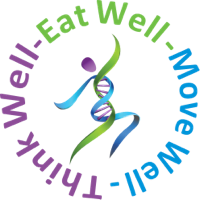©Dr. James L. Chestnut MSc., D.C., C.C.W.P.
Haldeman and Degenais elegantly describe what being an evidence-based/informed practitioner entails in their 2008 article in The Spine Journal: "The guiding principle behind evidence-informed management is that practitioners should be aware of and use research evidence when available, make personal recommendations based on clinical experience when it is not available, and be transparent about the process used to reach their conclusion."
I would say this principle applies to care directly provided by any given practitioner, and also to care provided via collaboration with, and/or referrals to, other practitioners. How could any ethical healthcare practitioner disagree with this guiding principle?
Only when we as a profession, ethically and objectively apply this guiding principle will we unite, express our potential, and earn the cultural authority, interprofessional respect, referrals, inclusivity, and reimbursement that the evidence clearly indicates we deserve.
The evidence-based care movement is the best thing to ever happen to chiropractic. It has created an even playing field and a demand that care be based on evidence, not unearned cultural authority and monopoly, credentials, or lobbying power.
The evidence is on our side but we have refused to allow the available evidence to unite us. Instead, we have allowed two small, vocal, and too often vitriolic extremes within our profession apply the guiding principles of evidence-based care and divided us.
Both groups are guilty of bias and dogma. One extreme tends to exaggerate the evidence and blindly accept any claim regarding the need and benefit of chiropractic SMT/adjustment. They will often blindly deny the benefits of other interventions based on a misguided "principle" that chiropractic practice must always reflect the vision of its founders and only include "straight" chiropractic adjustments and not any other "mixing" interventions - even if they are evidence-based. Clearly this is an unscientific, illogical, dogmatic stance. Chiropractic is not a religion or a cult: we follow basic science, clinical evidence and experience.
The chiropractic paradigm of addressing the cause and restoring function rather than treating symptoms of dysfunction, as well as understanding the relationship between segmental motion, spinal health, neuromusculoskeletal health, and overall health and quality of life are important in guiding our research and clinical decisions. But we must never use paradigm or philosophy as evidence for the need for care, or as evidence of benefit from care.
The other extreme tends to exaggerate and blindly accept the validity of unproven soft-tissue therapies, "specialized" exercise programs, disproven passive physical therapy modalities and/or virtually any other non-chiropractic SMT/adjustment interventions while too often rejecting or downplaying the evidence regarding the effectiveness and safety of chiropractic SMT/adjustment.
Obviously it is neither scientifically valid nor logical nor ethical to reject SMT due to a "lack of evidence" while accepting, promoting, and utilizing other interventions with less evidence than SMT. The standard of evidence regarding effectiveness, cost-effectiveness, and safety must be equally applied to all interventions. If it is not, then the terms "evidence-based" and “evidence-informed" simply turn into marketing terms, or a way to disguise personal bias or opinion, rather than unbiased movements to improve healthcare.
Is your own stance scientific and evidence-based or biased and dogmatic? Do you accept the different clinical experience and decisions of other DCs as equal to you and your peers, or do you have a dogmatic bias in favour of your own experience and opinions? Do you have any valid evidence that your clinical protocols based on your experience and opinions elicit greater patient outcomes? Of course not. If you did, your clinical protocols would be classified as evidence-based in the peer-reviewed literature.
Do you criticize others for making false claims based on testimonials or case reports while you do the same? Do you judge unsubstantiated claims of benefit or clinical superiority for soft-tissue or taping techniques, "specialized" exercise programs, or modalities more harshly than such claims regarding SMT/adjustment? Do you judge a testimonial from an athlete as more or less scientifically valid than one from a child or parent? Do you judge a case report on chiropractic adjustment as more or less scientifically valid than a case report on a soft-tissue technique? Do you judge a case report about pain as implicitly more or less valid than a case report regarding a non-neuromusculoskeletal complaint? Do you judge "special" back exercise programs or athletic taping protocols that lack valid evidence of effectiveness from randomized placebo-controlled trials as more or less evidence-based or scientific just because such interventions do or do not match your clinical preference?
Do you interpret the fact that preventative, wellness, and/or salutogenenic paradigms of healthcare make perfect biological and clinical sense as synonymous with the idea that there is valid clinical evidence that chiropractic adjustment/SMT prevents illness, increases wellness, or improves health?
Is an unsubstantiated, never tested claim that chiropractic adjustment/SMT takes pressure off a nerve to an organ less troubling to you than an unsubstantiated never tested claim that a soft-tissue technique breaks up scar tissue or that an athletic taping technique improves athletic performance or prevents injury?
Nobody who is dogmatic and lacks evidence likes to have to answer questions regarding evidence for what they do. They only like to pose such questions regarding what others do. To me this is the litmus test for unscientific dogma and unethical bias. If we are honest, we all have our confirmation biases regarding our own clinical results based on the biases of our chiropractic college, our professional peer group, and our clinical experience.
This is exactly what the evidence-based movement was intended to address. The peer-reviewed literature clearly points out that all healthcare professionals suffer from a lack of knowledge regarding which interventions are evidence-based, and clinicians in all professions often differ amongst themselves in how they manage patients. According to Bishop et al. (The Spine Journal, 2010): "Multiple studies have demonstrated a poor correlation between what primary health-care providers think is an effective treatment and what has actually been shown to be an effective treatment."
What all professions don't suffer from, is public vitriolic infighting and accusations of malfeasance based on different clinical experience and opinion masked as differences in levels of evidence. It's time we stopped allowing dogmatic, extreme factions to define and divide us and started adhering to the guiding principles of evidence-based/informed care in an atmosphere of dignity and respect regarding our differences, while we continue to conduct research. It 's time we stopped interpreting differences in clinical experience and opinion as differences in ethics, intellect, clinical effectiveness, and patient satisfaction when no such evidence exists. In the end, the only ethical goal is to provide the best possible care that elicits the best possible benefit:harm ratio, for the least possible expense, for any given patient.
We must do our best to remove all unethical, false claims, but we must do this in an ethical, unbiased, evidence-based way, and never demand a higher level of evidence from others than we demand from ourselves.
When there is clear evidence available then this can and should be used to create standards of practice. When there is no clear evidence available, which is more often the case than not in all aspects of healthcare, then ethics demand that we don't allow the vocal, vitriolic, biased, dogmatic voices from either extreme to influence standards of practice or regulatory decision-making.
Click HERE for PRINTABLE PDF



